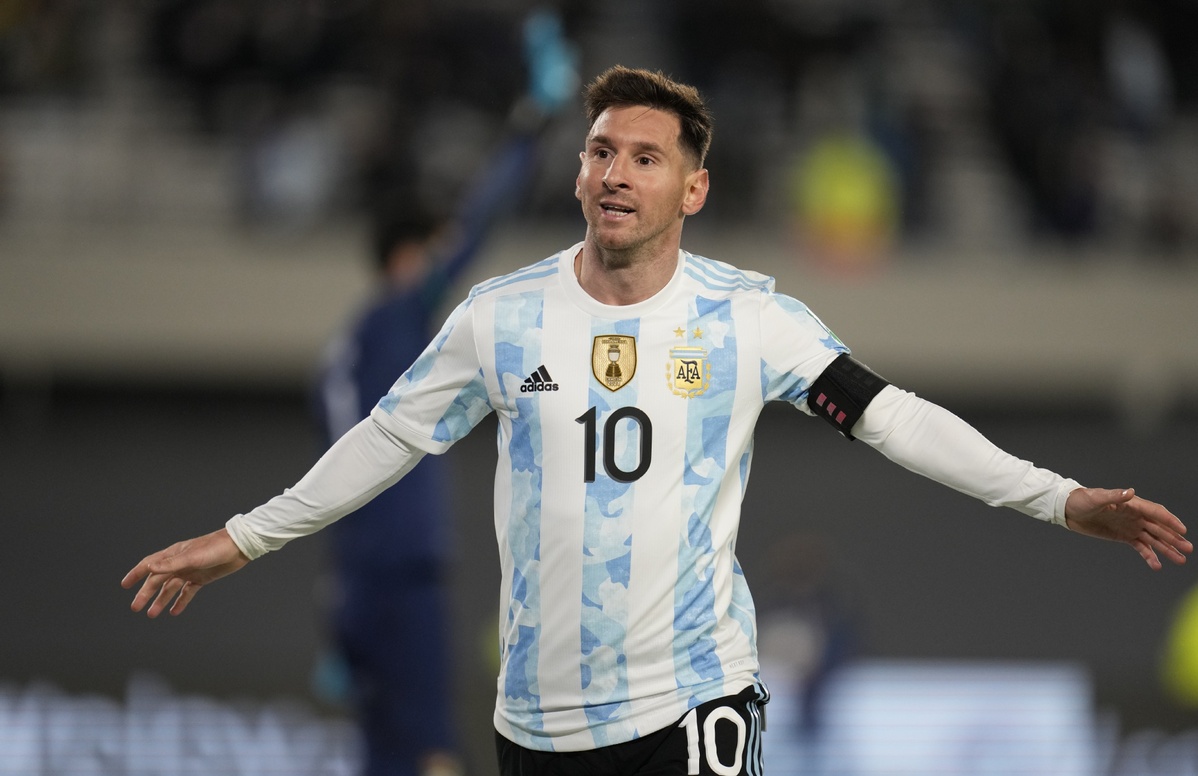Paraguay has implemented unusual measures ahead of their crucial 2026 World Cup qualifier against Argentina, including a ban on the iconic number 10 shirt in home sections of the stadium. This extraordinary step, confirmed by Paraguayan FA licensing manager Fernando Villasboa, represents a unique attempt to preserve home advantage against the reigning world champions.
The Defensores del Chaco Stadium will host the November 14 clash between Paraguay and Argentina, but local supporters hoping to pay tribute to the eight-time Ballon d’Or winner will need to reconsider their matchday attire. The ban extends beyond just Messi jerseys, encompassing all Argentina national team shirts and even club jerseys bearing the names of opposing players.
Speaking to EFE, Villasboa explained the rationale behind this unusual decision: “We have already warned that in the local sectors, we will not allow access to jerseys that are not from Paraguay, or perhaps neutral ones, but not from the rival.” He emphasized that the measure isn’t targeted at any specific player, but rather aims to maintain the crucial home advantage that could prove vital in their World Cup qualification campaign.
The timing of this measure is particularly significant as it comes when Messi’s global appeal is perhaps at its peak. Fresh from leading Argentina to World Cup glory in Qatar 2022 and following a headline-grabbing move to Inter Miami in MLS, Messi’s popularity has reached unprecedented heights. His recent eighth Ballon d’Or win has only added to his legendary status, making this restrictive measure seem both practical from a sporting perspective and symbolic of his overwhelming influence on the game.
Paraguay’s stance isn’t entirely without precedent in their recent history. The federation implemented similar restrictions during their September 10 match against Brazil, suggesting a broader strategy to reinforce home advantage in crucial qualifiers. The policy will continue for their upcoming matches against Chile and Colombia in March 2025, as Paraguay, currently sitting sixth in the CONMEBOL qualification standings, fights to secure a spot in the 2026 World Cup.
The measure reflects a growing trend in South American football where nations are becoming increasingly creative in their attempts to neutralize the ‘Messi effect.’ The Argentine captain’s ability to draw support even in opposing stadiums has become a unique challenge for host nations, potentially diluting the traditional home advantage that teams rely upon in crucial qualifiers.
This situation also highlights the broader phenomenon of Messi’s transcendent appeal in world football. The fact that a national federation feels compelled to implement such measures speaks volumes about his influence beyond Argentina’s borders. His ability to attract admirers even among opposing fans has created a scenario where traditional concepts of home and away support have become blurred.
For Paraguay, currently in a crucial phase of their World Cup qualification campaign, the stakes couldn’t be higher. Their position in the CONMEBOL standings makes every home game vital, and maintaining a strong home atmosphere could prove decisive in their quest to reach the 2026 World Cup, which will be jointly hosted by the United States, Mexico, and Canada.
The effectiveness of such measures remains to be seen, but their implementation raises interesting questions about the nature of modern football fandom and the impact of global superstars on traditional sporting rivalries. While some might view these restrictions as extreme, they represent an innovative, if controversial, approach to maintaining the intensity of home support in international football.
As the match approaches, this unusual measure adds another layer of intrigue to what promises to be a fascinating World Cup qualifier. Whether Paraguay’s strategy will succeed in creating a more partisan atmosphere, and potentially influencing the outcome of the match, will be closely watched by other nations facing similar challenges in the age of global football superstars.



